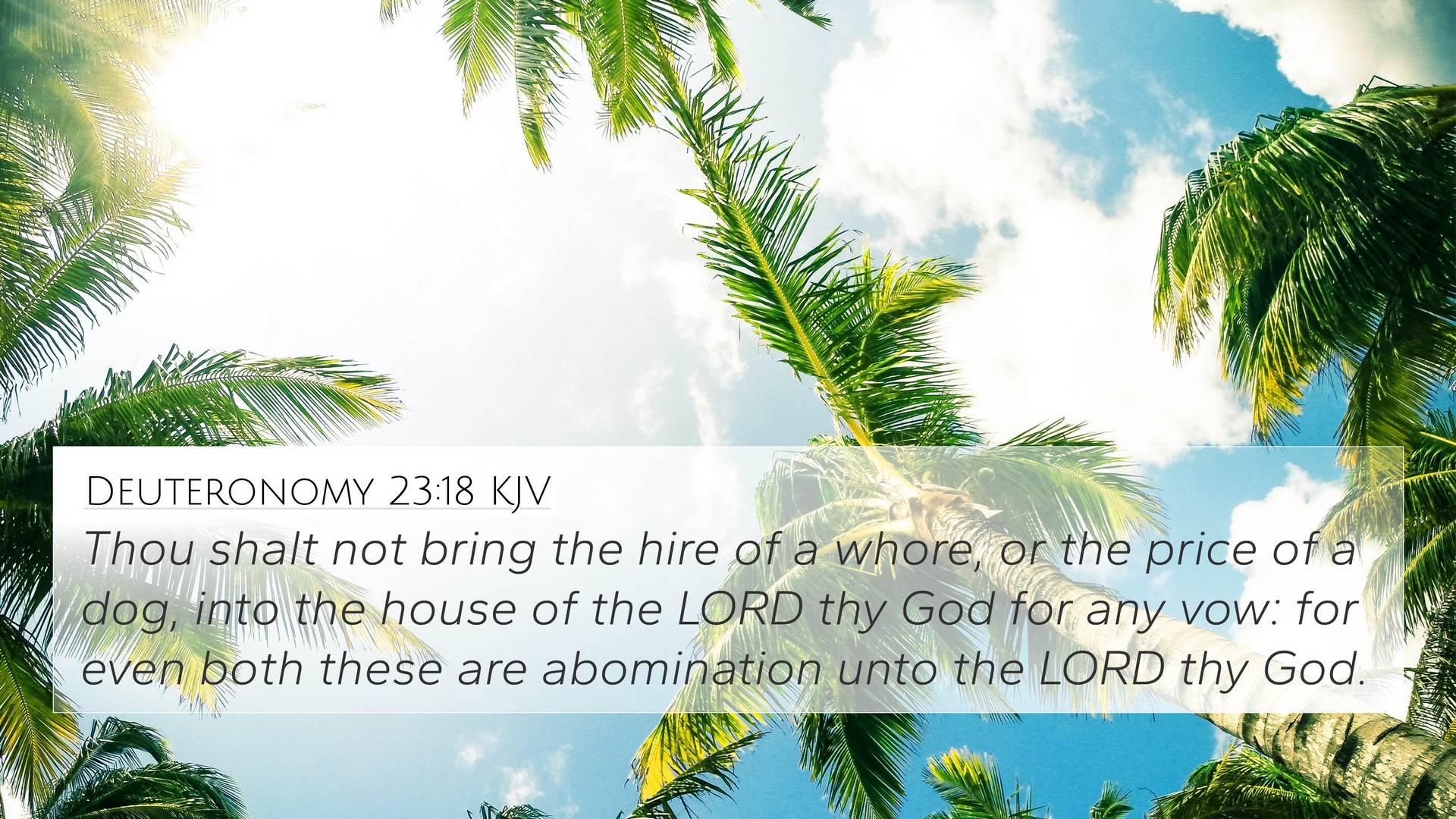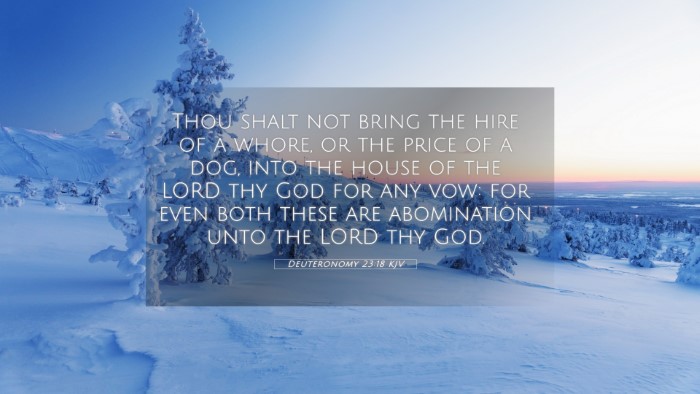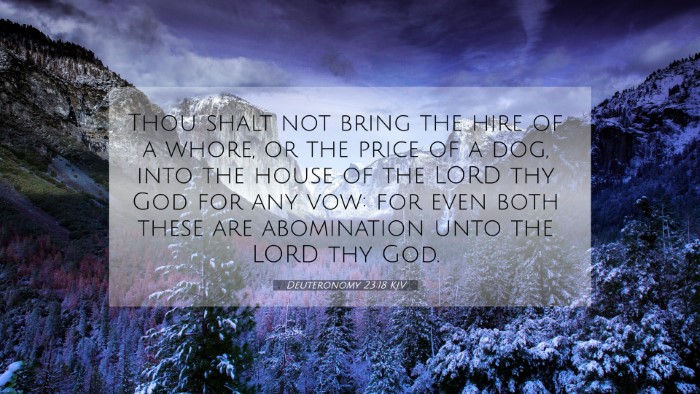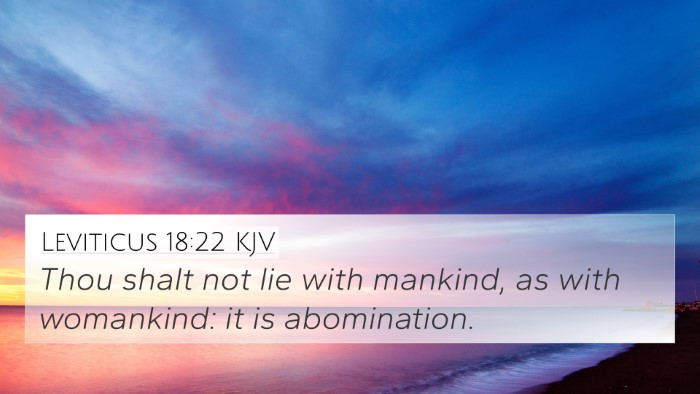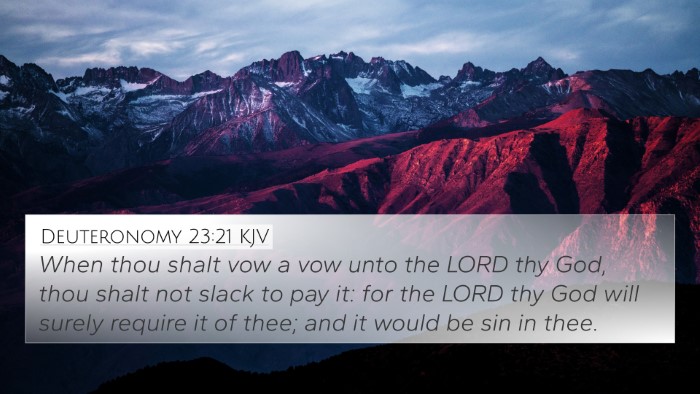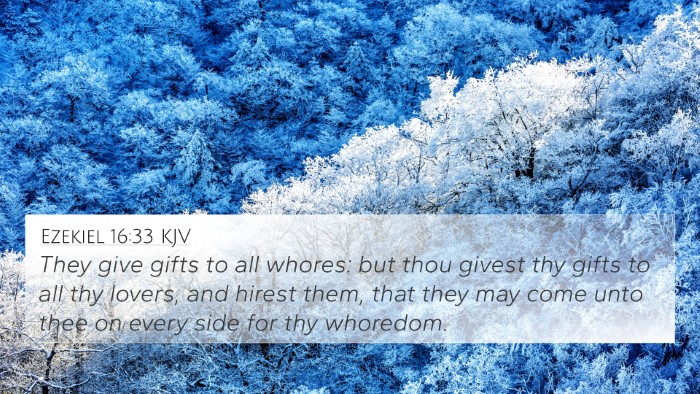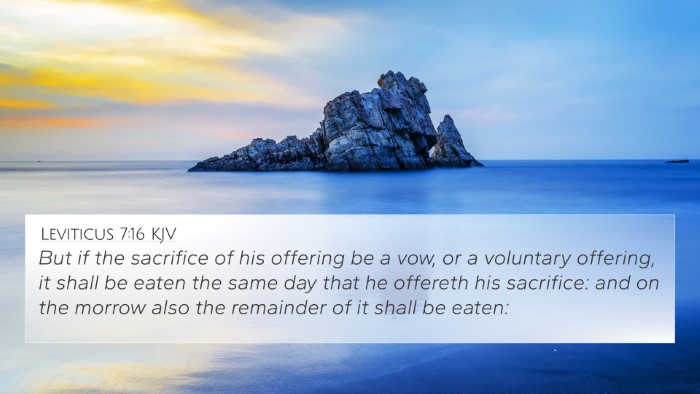Understanding Deuteronomy 23:18
Deuteronomy 23:18 states, "You shall not bring the hire of a harlot or the price of a dog into the house of the LORD your God for any vowed offering, for both of these are an abomination to the LORD your God." This verse addresses the ethical implications of approaching God with offerings obtained in morally questionable ways.
Commentary Insights
Below is a synthesis of insights from notable public domain commentaries, including Matthew Henry, Albert Barnes, and Adam Clarke.
Matthew Henry's Commentary
Matthew Henry emphasizes that God desires purity in worship. The analogy of "the hire of a harlot" and "the price of a dog" illustrates how offerings should stem from honorable sources. Henry explains that this prohibition serves as a reminder of divine holiness—showing that God is sacred and must not be approached with the defilement of sin. Using ethically obtained resources honors God in worship, reinforcing one's integrity and moral standards.
Albert Barnes' Notes on the Bible
Barnes highlights that the term "dog" in this verse represents a male prostitute in biblical contexts. The overarching theme centers on the idea that offerings must reflect the character of God—purity and righteousness should define the way believers approach their gifts. He suggests that this verse sets a precedent for the kinds of gifts acceptable to God, focusing on whether they are obtained righteously or through morally dubious means. This speaks to the overall theme of separation from pagan practices in worship.
Adam Clarke's Commentary
Clarke goes further by discussing the historical context of this command. He observes that ancient cultures often engaged in temple prostitution and used the resulting finances for religious offerings. Therefore, Deuteronomy 23:18 serves to distance Israel from these practices, insisting that worship of Yahweh must be pure, distinctly separate from the surrounding cultures. Clarke suggests that such prohibitions are pathways to understanding God's standards for acceptable worship.
Key Themes and Cross-References
Deuteronomy 23:18 emphasizes themes of holiness, morality, and the integrity of offerings. The following are key cross-references that allow for a comparative Bible verse analysis:
- Leviticus 21:6: Prohibitions on the priests regarding defilement and holiness in their service.
- Malachi 1:14: God’s indictment against unworthy sacrifices, calling into question the resources used by His people.
- 2 Corinthians 6:17-18: The call to separation from unclean things, reinforcing the idea of purity in the congregation.
- Exodus 20:16: Guidance against bearing false witness, tying in the emphasis on moral human behavior.
- Isaiah 1:11-15: God’s displeasure with offerings that come from corrupt practices.
- James 1:27: Pure religion defined as caring for the marginalized and keeping oneself unpolluted from the world.
- Matthew 5:23-24: The need for reconciliation before bringing an offering to the altar—highlighting relational integrity.
Thematic Connections and Further Study
By examining Deuteronomy 23:18 in conjunction with these cross-references, one can delve into an inter-Biblical dialogue about the nature of worship, ethics, and divine standards. This exploration allows for comprehensive Bible cross-reference materials that illustrate the consistency of God’s expectations throughout scripture.
Practical Application
Understanding this verse encourages believers to consider the sources of their contributions to God and their community. The ethical dimensions of giving challenge individuals to examine their motives and the origins of their gifts. This reflection leads to growing integrity in one’s relationship with God and an acknowledgement that true worship is marked by purity and righteousness.
Tools for Bible Cross-Referencing
For those seeking to understand and explore these connections further, there are several tools available:
- Bible concordance: Useful for locating key themes and terms associated with specific verses.
- Bible cross-reference guide: A structured format to find connections between verses seamlessly.
- Cross-reference Bible study: Techniques for studying scripture by exploring interrelated themes and ideas.
- Bible chain references: A method of following thematic links through scripture to build context and depth in understanding.
Conclusion
Deuteronomy 23:18 serves as a powerful reminder about the nature of offerings to God, urging believers to approach Him with integrity. This verse—along with its cross-references—connects a rich tapestry of biblical principles that guide us in our worship and ethical living. Engaging with these scriptures enhances our understanding of God’s holiness and invites the faithful into deeper, more meaningful worship.
